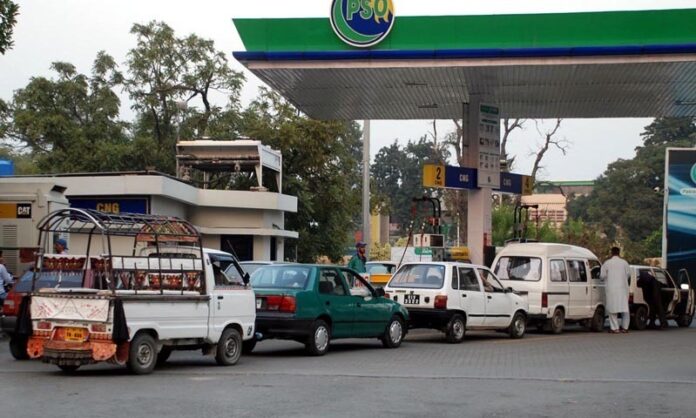The Economic Coordination Committee (ECC) of the Senate is to blame for the current shortage of petroleum products as it rejected a new price mechanism proposed by the Petroleum Division, according to sources quoted by Business Recorder,
Currently, refineries are allowed to fix ex-refinery sales prices of petroleum products on a monthly basis that is subject to the condition that the ex-refinery price cannot be more than the Pakistan State Oil’s (PSO) average actual landed import price of the previous month.
According to the report, the current system based on PSO’s last month procurement disincentives OMC’s in times where there is volatility in the market. As a result, OMC’s opt to let their inventories run dry instead of importing it on unfavorable margins.
Therefore, OMCs were reluctant to import when the margin was unfavorable and instead let the inventory run dry leading to a supply crisis at the national level.
The new pricing mechanism proposed by the Petroleum Division to ECC on May 30th would have based the ex-refinery price on the average of fortnightly/monthly Platts price plus premium and would have been used to determine the selling price for both refineries and OMC’s.
Moreover, it would have reduced the price risk from 30 days to 15 days incentivising OMC’s to import petroleum products at current PSO rates to avoid inventory losses.
Earlier, the Petroleum Division, in its letter sent recently to the OGRA chairperson, warned against the hoarding of petroleum products, saying that OMCs may curtail supplies to their retail outlets “in order to acquire financial gain of expected price increase of petroleum products effective from 1st July 2020”.
It further asked OGRA to deploy vigilance teams across the country to verify OMCs’ stocks at depots/terminals/retail outlets so that uninterrupted suppliers to retail outlets could be ensured.
Earlier, in a letter dated 28th May, OGRA had requested Hydrocarbon Development Institute of Pakistan (HDIP) to physically check and confirm on an urgent basis the availability of petrol and diesel with all OMCs, retail outlets and refineries. OGRA had also asked the HDIP director general to urgently start inspection and verify petroleum products’ availability at depots of OMCs, retail outlets and refineries storage, and submit a report in this regard latest by June 3, 2020.
According to sources, OGRA had also directed OMCs to provide depot-wise sales and stock data of the past three months (March, April, May 2020) and had warned OMCs that in case of failure to provide the above information/confirmation within the stipulated time, legal action would be initiated against them as per law.
In order to provide relief to the consumers amid Covid-19, the government on Sunday had reduced the price of petrol by Rs7.06 per litre.
Petrol price was slashed from Rs81.58 per litre to Rs74.52 per litre, while that of kerosene oil was reduced from Rs47.44 per litre to Rs35.56 per litre, whereas the price of light diesel oil was lowered from Rs47.51 to Rs38.14.
However, prices of high-speed diesel had witnessed a nominal increase of Rs0.05, from Rs80.10 per litre to Rs80.15 per litre.
As per the finance ministry, the government had decided to extend further relief in petroleum prices to the public “despite the global trend of increasing POL prices”.




